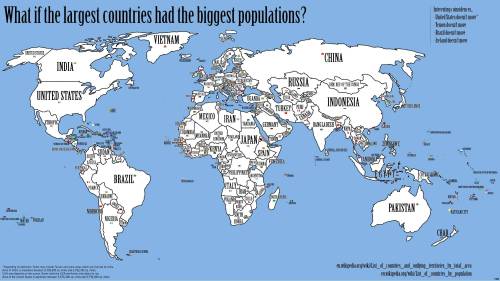Les Paul, known primarily for the iconic guitar that bears his name, also invented most of the recording technology we still use today, including the use of reverb as a studio effect. But of course he didn’t invent reverberation anymore than he invented the guitar; he just turned both of them electric. Reverb has existed as long as there have been soundwaves, obstacles for them to hit, and ears to hear what happens when they do. In every possible space—landscape, cityscape, and architectural formation—the effect announces itself differently, though we’re seldom aware of it unless we’re in grand, cavernous spaces like a cathedral or mountain gorge.
But musicians and audio engineers like Les Paul have always paid special attention to the way sound manifests in space, as have singers like the gent above, who calls himself the Wikisinger, real name Joachim Müllner. With “no artificial reverb added,” Müllner demonstrates how much environment contributes to the quality of what we hear with a montage of sound and video clips from several—very aesthetically pleasing—locations. In each place, Müllner sings the same strange song: in a tunnel, an attic, a field before an oil derricks, the nave of a cathedral, and an anechoic chamber—which resembles the interior of an alien spacecraft and produces no reflections whatsoever. Sometimes the effect is subtle, inviting you to lean in and listen more closely; sometimes it’s outsized and operatic.
The filmmaker’s claim to “no artificial reverb” sounds a little slippery after viewing the Wikisinger’s performance since one of the most dramatic clips features his voice, and person, reduplicated several times. And we should keep in mind that no recording technology is perfectly transparent. Microphones and other equipment always add, or subtract, something to the sound. As slick as an advertisement, the short video uses a heavily mediated form to convey the simple idea of natural reverberation. You may, in fact, have seen something just like this not long ago. Before the Wikisinger, there was the Wikidrummer. In another “no reverb added” video above, he snaps, cracks, booms, and crashes through the same beat in garages, open fields, and underpasses. With each abrupt shift in location comes an abrupt shift in the frequency and duration of the sounds, as the full spectrum collides with metal, concrete, asphalt, and open air.
The ways in which sound and space interact can determine the shape of a musical form. This subject has given musician, artist, and theorist of music and art, David Byrne much to think about. As he puts in in a TED talk above, the “nature of the room”—the quality of its reverb—guides the evolution of musical genres and styles. Beginning with the example of CBGBs and like dive bars around the country, he describes how the art punk pioneered by his band the Talking Heads depended on such spaces and “didn’t sound all that great” in places strictly designed for music, like Carnegie Hall. His talk then takes us to some fascinating architectural environments, such as the kinds of rooms Mozart composed and played in. Byrne speaks to the neophytes as well as to the audiophiles among us, and his talk works as a perfect intellectual complement to the sonic and visual adventure on offer in the Wikisinger and –drummer’s videos. Both approaches equally persuade us of the prime significance of that intangible wonder called reverb.
Related Content:
David Byrne: How Architecture Helped Music Evolve
What Ancient Greek Music Sounded Like: Hear a Reconstruction That is ‘100% Accurate’
Listen to the Oldest Song in the World: A Sumerian Hymn Written 3,400 Years Ago
Josh Jones is a writer and musician based in Durham, NC. Follow him at @jdmagness.






